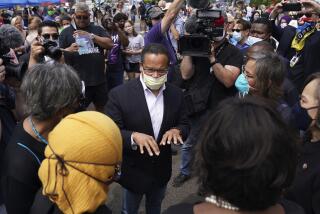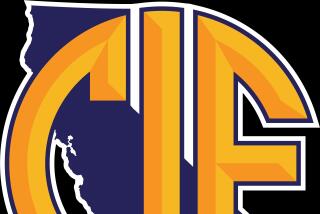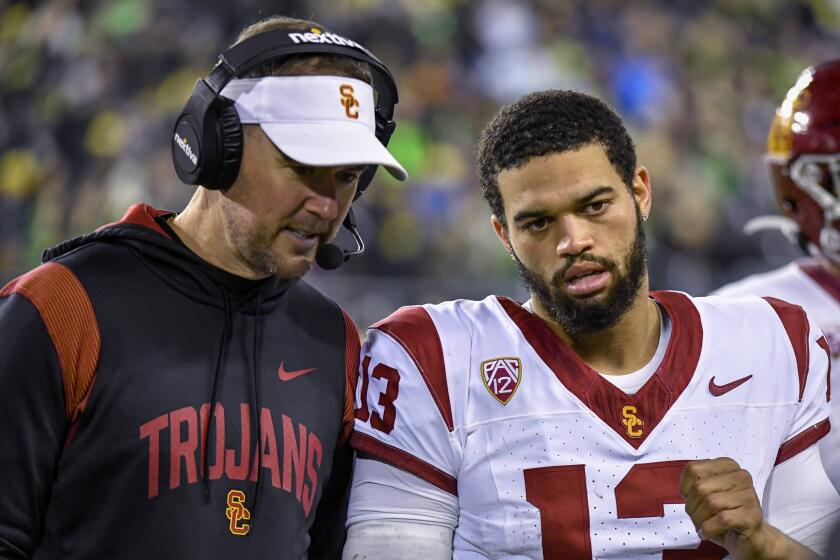Focus Is on Minority Hiring
NASHVILLE — When Portland State was searching for a football coach in the 1970s, a committee interviewed 17 candidates.
None of the men was a minority, but a committee member suggested the school look at an African American assistant coach at Oregon.
Ron Stratten, the 18th person interviewed, was hired in 1972, becoming the first black coach at a predominantly white school.
Stratten, now the NCAA’s vice president for education services, says that committee member’s suggestion to consider a minority is the kind of attitude and easy step that’s needed to help increase the number of minority coaches and athletic directors.
“We can do that,” Stratten said Saturday during a forum at the NCAA convention, which began Friday and concludes Monday.
In 1995, the NCAA started keeping track of the percentage of minority players versus the percentage of minority coaches, and there has been little change in the ratio, said Denise DeHass, the NCAA’s assistant director of research.
Nearly 30% of students playing men’s sports were minorities while only 11.7% of coaches were minorities in 2001-02, the most recent year’s statistics provided by the NCAA.
This season, there were only four black coaches in Division I-A football -- UCLA’s Karl Dorrell, Notre Dame’s Tyrone Willingham, San Jose State’s Fitz Hill and New Mexico State’s Tony Samuel.
Last month, Mississippi State hired Sylvester Croom, the Southeastern Conference’s first black football coach.
Floyd Keith, executive director of the Black Coaches Assn., who spoke at the forum, said he is optimistic changes are coming.
The BCA is introducing this year a report card on each school’s search.
Grades will be given on the number of times the school contacts Keith about possible candidates, the percentage of minorities involved in the hiring process, the number of minorities interviewed, how long the search takes and how it followed institutional affirmative action policies.
The first report cards should be available by August but may come as early as this spring, Keith said.
NCAA President Myles Brand said he endorsed the BCA’s plan.
“It doesn’t guarantee minorities will get the positions but that they will get a fair shot,” he said.
More will happen when schools commit to diversity.
“Those responsible for the hiring process are not here in this room,” said Carlyle Carter, who is the only black conference commissioner as head of the Minnesota Intercollegiate Athletic Conference.
“Until then, there will be no change.”
Officials said 375 delegates signed up to attend the forum, but it drew fewer than half that many.
*
The NCAA will hire seven more investigators to keep up with the growing number of complex infraction cases, Brand said.
Brand said the NCAA, which is increasing its investigative staff from 14 to 21 members, wants to hire former attorneys or others experienced in criminal justice.
“We have had some increase in the last decade in the numbers per year of major infractions,” Brand said. “The length to resolve them has been elongated more so than it should be. It would be best to solve in a more efficient way.”
Brand said he would discuss the decision more in his State of the Association address at the NCAA Convention today.
More to Read
Go beyond the scoreboard
Get the latest on L.A.'s teams in the daily Sports Report newsletter.
You may occasionally receive promotional content from the Los Angeles Times.










